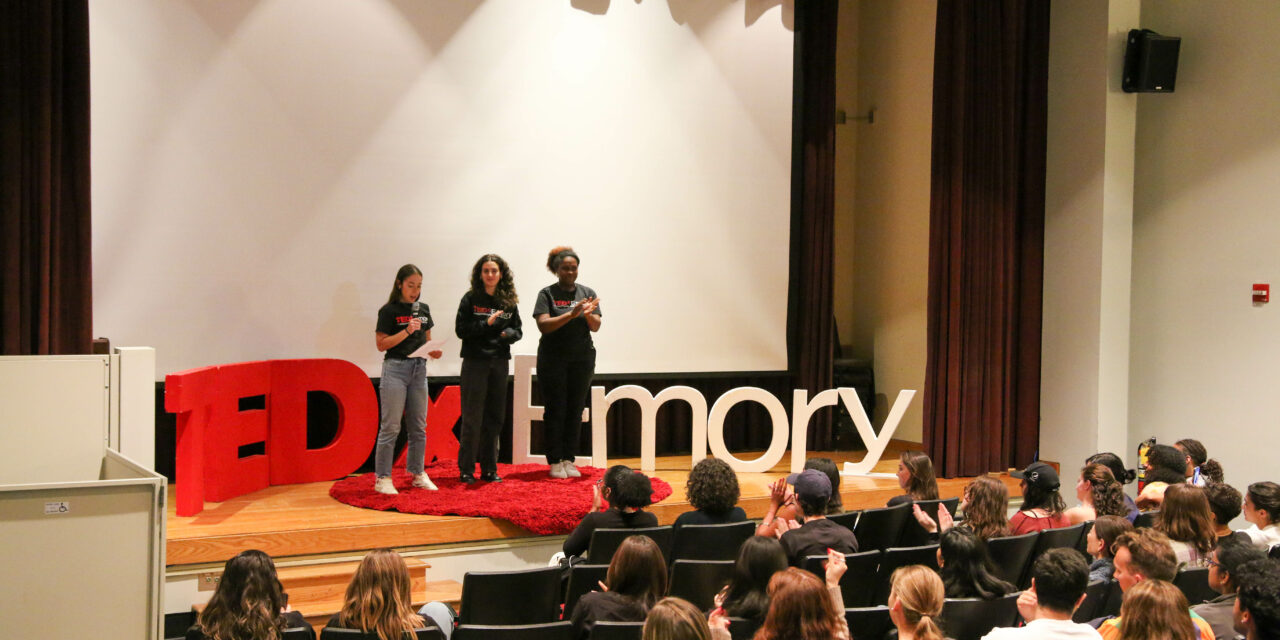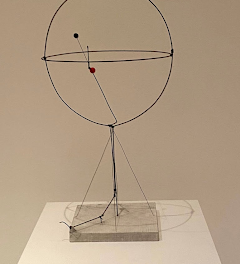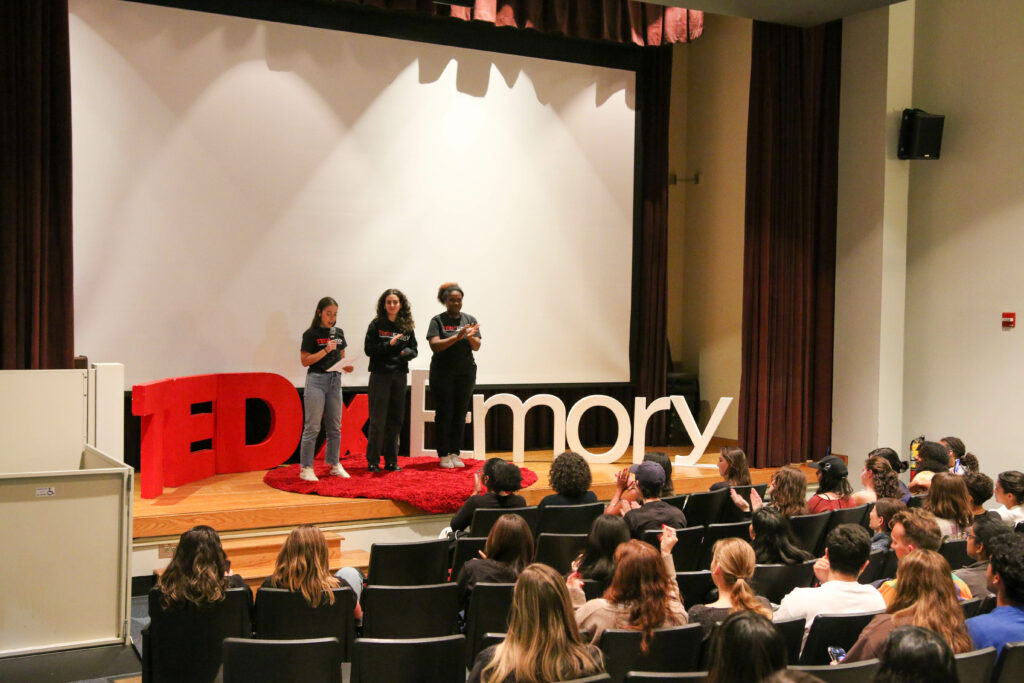
(Jack Rutherford/Senior Staff Photographer)
Content Warning: This article contains references to sexual assault.
Students packed Harland Cinema on Oct. 25 to hear their peers’ unique perspectives on sexual health, sexual education and reproductive justice. People filled nearly every seat in the auditorium.
SexTalks, an annual TEDxEmory event, features Emory students’ speeches on sex-related topics. TEDxEmory partnered with Planned Parenthood for this event, aiming to address the stigma around sexual identity, education, pleasure, health and reproductive justice.
Speakers included Sona Davis (24C), Emma Friese (24C), Saanvi Nayar (26C), Kaylah Jones (25N) and Warren Clarke (22Ox, 25C).
TEDxEmory President Emily Silver (24C) also gave remarks. She said that it is important to shed light on stigmatized issues.
“It brings to the conversation topics that aren’t usually talked about in an academic or campus setting,” Silver said.
Davis was the first student to take the stage. She described her experience growing up as a half-Black and half-Indian woman with large breasts. Davis explained how Black women have been historically hypersexualized, face double standards in their portrayal by media and experience higher rates of sexual violence.
Davis grew up feeling like she was to blame for strangers’ unwanted stares. Due to many factors, Davis decided to undergo a bilateral breast reduction. Afterward, she said she felt a “weird sense of calm,” no longer experiencing back pain or feeling as self-conscious about her image.
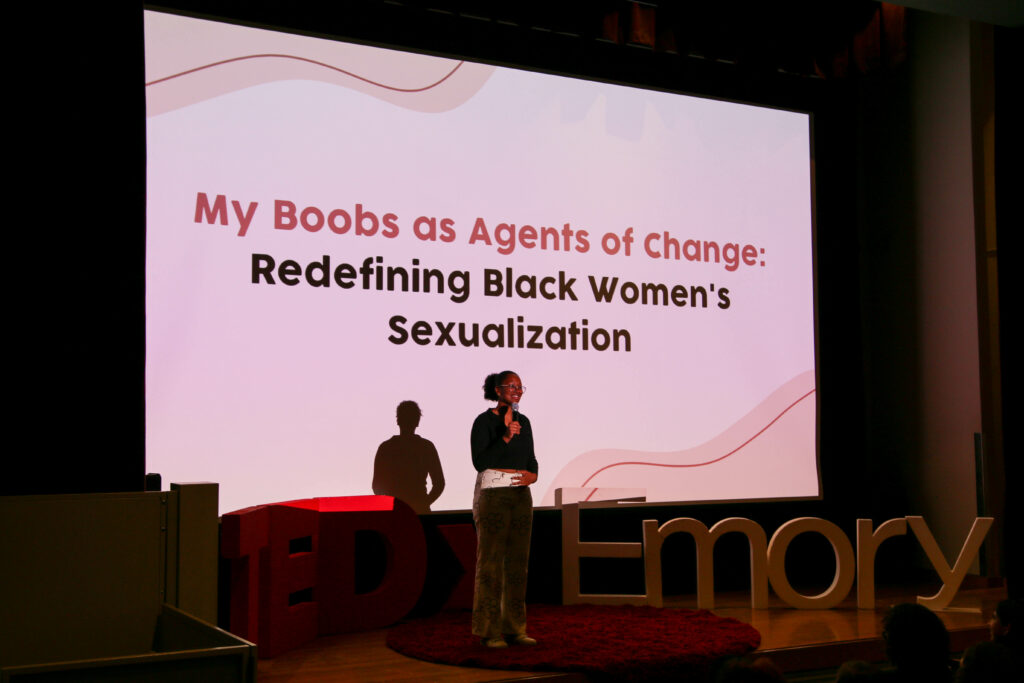
(Jack Rutherford/Senior Staff Photographer)
“No amount of surgery can ever stop the continuous external commentary on my body and the body of women everywhere,” Davis said.
Her decision was one of autonomy and empowerment. However, she advocates for people to educate themselves on the prejudices against women’s bodies and for women’s right to feel safe.
Friese discussed the importance of sex education in combating sexual prejudice and violence. Friese described her experience growing up with a gynecologist mother and critiqued Arizona public school curriculums for preaching abstinence over protective measures, which she said stigmatizes sex. She added that state legislators determine both the sexual education curriculum’s funding and the accuracy of the education.
“Some people never even got comfortable saying penis and vagina,” Friese said. “So that’s what we’re going to do right now, actually.”
The audience shouted the words “penis” and “vagina” in unison. This activity helps destigmatize sexual health knowledge, Friese said. Using these words also encourages people to use medically correct terms instead of reverting to slang to “understand sexual development and prevent risk behavior.”
Nayar spoke about her experience traveling to Copenhagen, Denmark. She recalled learning about feminist communes, where female-identifying women live in groups to bond and create support networks without men. Nayar tied this to her experience living in a sorority, though acknowledged it is a “microcosm of a white, cis female experience.”
She argued how fraternities maintain social influence by deciding which sororities are most “conventionally attractive,” thereby dictating sororities’ reputations. Fraternity members are also three times more likely to sexually assault their non-affiliated counterparts, Nayar said.
Nayar directly asked the male audience to reexamine their female friendships. She advocated for individuals to treat their female counterparts with respect and as equals.
Kaylah Jones (25N), a certified registered behavior technician, discussed the importance of teaching autistic children about sex education to undo the misconception that neurodivergent children do not have sexual needs. Jones laid out three steps in teaching autistic children about sex: assessing prior knowledge, promoting self-advocacy and using anatomical terms.
Neurodivergent individuals struggle with sensory sensitivity, communication barriers and other challenges, which can overwhelm them, Jones said. However, this does not mean that people with intellectual disabilities do not have sexual urges. Rather, it indicates they might have not received appropriate socialization. Jones asserted that neurodivergent people deserve access to the same resources as their non-neurodivergent counterparts.
Warren Clarke (22Ox, 25C) recounted her experience at Oxford College, where she met men who lacked an understanding of the female reproductive system. For example, some men thought that people could have sexual intercourse directly after they gave birth.
These misconceptions lead to a rise in sexual assault and give politicians who lack that knowledge the ability to rule over women’s reproductive health, Clarke said.
Clarke cited that only 13 states require sex education programs to be medically accurate. In other cases, adolescents instead learn about sex from pornography which teaches violence, misogyny, racism and inaccurate information about sex and pleasure. Clarke strongly advocated for comprehensive sex education to dismantle these misconceptions and oppression.
Alongside Clarke, who distributed sex education pamphlets, Planned Parenthood provided condoms and other resources at the event.
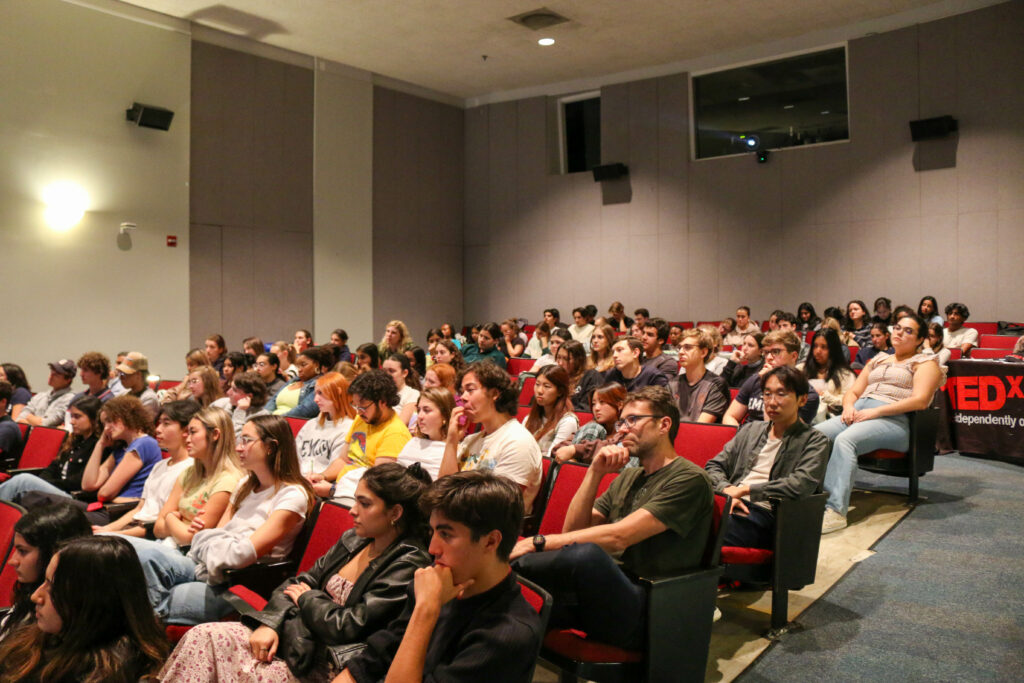
(Jack Rutherford/Senior Staff Photographer)
Audience member Imaan Hasham (25C) praised the event.
“I’m walking away with a lot more appreciation for adequate sexual health education, in my experience, and more appreciation for this talk because it’s so taboo in some cultures, especially in my culture,” Hasham said.
After the talk, Friese reflected on her first TedxEmory speech.
“There were things in there that are very personal to me that I put out there, and this felt like a good, safe, empowering way to do it,” Friese said.
The event ended with a roar of applause. All speakers conveyed one distinct message: Knowledge is a tool for destigmatizing sex, and correct sex education is a step toward dismantling misogyny.
If you or someone you know experienced sexual assault, you can access Emory’s Title IX resources at 404-727-0541 or https://equityandcompliance.emory.edu/title-ix/index.html and the Office of Respect at https://respect.emory.edu/ or their hotline 24/7 at (470) 270-5360. You can reach the RAINN National Sexual Assault hotline 24/7 at (800) 656-4673 or https://hotline.rainn.org/online. You can reach the Atlanta Grady Rape Crisis Center crisis hotline 24/7 at (404) 616-4861 or gradyrapecrisiscenter@gmh.edu and the Decatur Day League Sexual Assault Care and Prevention crisis hotline 24/7 at (404) 377-1428.
Fay is currently a second year studying psychology from Bangkok, Thailand. Fay is involved in Holistic Hub, APIDAA, Student Alumni Board, and ResLife. Outside of class, she enjoys being outdoors running, reading for leisure, and connecting with people!

